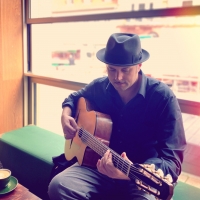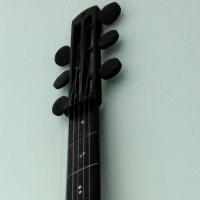DjangoBooks.com
Welcome to our Community!
Categories
- 20K All Categories
- 1.1K General
- 485 Welcome
- 60 Archtop Eddy's Corner
- 147 CD, DVD, and Concert Reviews
- 385 FAQ
- 26 Gypsy Jazz Italia
- 27 Photos
- 209 Gypsy Picking
- 21 Unaccompanied Django
- 15 Pearl Django Play-Along Vol.1
- 17 Gypsy Fire
- 45 Gypsy Rhythm
- 1.4K Gypsy Jazz University - Get Educated
- 131 Gypsy Jazz 101
- 231 Repertoire
- 228 History
- 709 Technique
- 51 Licks and Patterns
- 6 Daniel Givone Manouche Guitare Method Users Group
- 20 Eddie Lang Club
- 1.3K Gypsy Jazz Gear
- 816 Guitars, Strings, Picks, Amps, Pickups and Other Accessories
- 465 Classifieds
- 52 Recording
- 63 Other Instruments
- 18 Violin
- 5 Mandolin
- 22 Accordion
- 7 Bass
- 11 Woodwinds
- 351 Gypsy Jazz Events
- 144 North America
- 112 Europe
- 95 International
In this Discussion
Who's Online (0)
Learning gypsy jazz, but coming from electric guitar
 ChristopheCarington
San Francisco, CA USANew Dupont MD50 Custom
ChristopheCarington
San Francisco, CA USANew Dupont MD50 Custom
If you’ve ran into an issue, questioned yourself, or not known where to find the right answer when first learning jazz manouche – this post is for you, because you’re not alone.
Where to start?
I start by listening to the music – whatever you find particularly interesting. Bossa Dorado personally got me hooked, after hearing the music from street musicians in France and Italy. It’s important to enjoy what I listen to, despite people saying “you should listen to X.” I personally found this Spotify great for expanding who I listened to in the beginning: https://open.spotify.com/playlist/4g6mYoAIubVwm2lYoB7DnG
Did I need a gypsy jazz guitar to learn?
No, but it did help build the correct technique MUCH quicker. I started playing on my archtop. About a month in, I bought a cheaper gypsy guitar (an Eastman DM2 – yes, under $1500 is “cheap” for these guitars). The guitar didn’t play quite right, but I powered through it for a bit.
The “normal” position of playing gypsy guitar is sort of awkward?
It feels awkward at first. Michael Horowitiz’s book really helped my right arm position and wrist position. However, I still felt the guitar slipping, and I was slumping over it (causing some lower back issues). I changed chares – that didn’t seem to entirely fix it. It wasn’t until looking at myself in the mirror, legs spread like when practicing electric, it clicked. I forced my legs together while sitting – and the guitar was no longer slipping (and my back wasn’t getting tired). It was the missing piece no one talks about.
But why are my arms/hands/shoulders are sore playing this gypsy jazz guitar?
This was by far the biggest shock coming from mostly electric playing – my hands and forearms were sore from practicing, and my shoulder would start to burn like I was working out. Also, some chord shapes I found from random videos online (e.g. a G6 played on all 6 strings with the thumb over the top) were awkward and strained my muscles. In the beginning, everything would be sore even when I kept my shoulder and arm untensed or “loose.” Found out that playing an acoustic is physically more demanding than an electric – there’s a reason acoustic players have huge forearms. But I needed someone experienced to help make sure I wasn’t hurting myself in the long run.
Do I really need a teacher?
Technically no, but highly recommended for multiple reasons. I needed to know if my muscle soreness was a right-of-passage into playing acoustic, or if I was screwing up my shoulder. Also, my la pompe didn’t sound like what I heard on records. So I reached out to a local Djangologist - Paul Mehling. My technique, my tone, and my questions I couldn’t answer from the internet – he had the answer to. Except for picks…
But my tone still sucks?
People said buy this big white Wegen pick. It’s also what Paul uses (though he files his down). To me, it pretty unwieldy, and has a terrible clickyness to it. Maybe I should try something different? Wegen big-city, Dunlop, **** picks, etc? Nope, all clicky. However, over time my ears found the click of one type of pick better than others. Now, when I switch back to a Wegen, I don’t mind the clickyness as much as I did when I first started playing.
But do I need to use a big pick and play hard?
People said I gotta play hard with a big pick for the best tone. Answer is you don’t but forcing yourself to learn how to play hard (harder than electric that is) with a thick pick (2mm or above) does make you a better player. It’s like sports training with weights on your body, then taking them off to play a game.
So… which pick?
At first I used the classic Wegen, I lost speed, played the wrong strings, and my muscles became sore. So I switched to a Wegen Big City – similar in size to my electric guitar picks. Instantly played more accurately and with much less click, but with much less volume and a thinner tone. Worse though, my rhythm playing suffered. Because I couldn’t really hold my own and didn’t know enough repertoire, I was stuck playing rhythm 90% of the time – and now I sucked at that with the new pick. So, I chose a pick for better rhythm playing and forced myself to stick with it (Django Guitar “G” pick). Months later, I’m very happy I made this switch. Additionally, I’ve had to play with a Wegen Big City and noticed my rhythm is fine now. So start big and unwieldly to get better, then revisit in the future if you want to switch it up.
But I still suck, and don’t want to embarrass myself!
Everyone sucks at one point. However, you’ll learn quicker going out and playing with people – even more so with gypsy jazz. The reason I say this is traditional jazz jams can have reputations as being unwelcoming “cutting sessions.” Gypsy jazz jams tend to be much friendlier in my experience. Maybe it’s because jazz manouche is essentially folk music, or because playing only rhythm guitar is valuable, or maybe people are just happy that you’re interested in the same niche as they are. Whatever the reason – playing with others will elevate your ability much faster.
Thanks for reading... this turned into a bit of a reflection of the past 8 months I've spent dedicated to learning the music, as I find myself starting to forget some of the difficult things I wrestled with at first and didn’t find great answers. If you find yourself with additional questions, I may not have the answer but I can should be able to point you in the right direction.
















Comments
If we're ever able to go outside again, we should jam...6' apart, maybe in a park somewhere :)